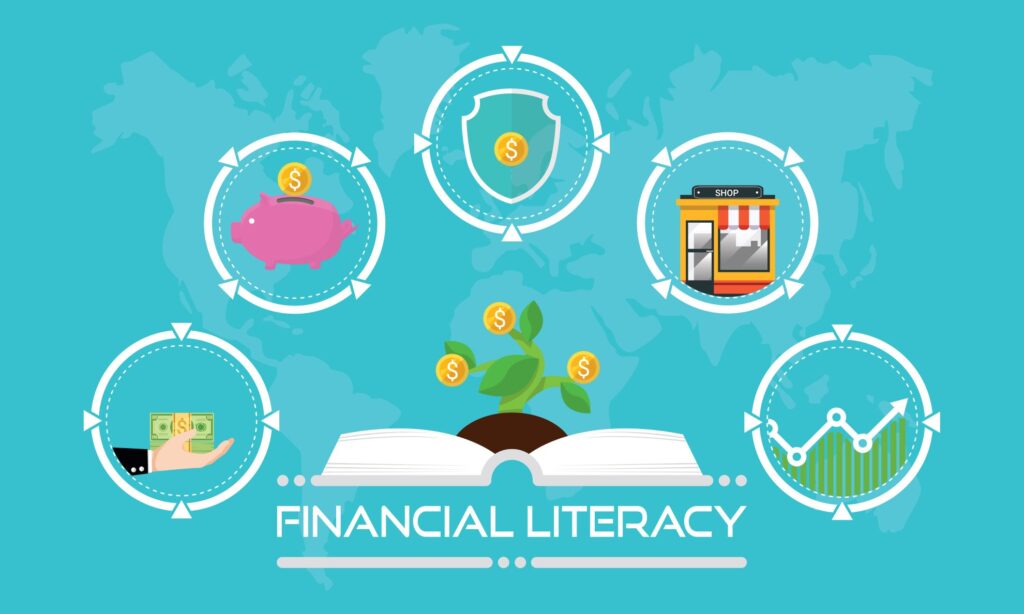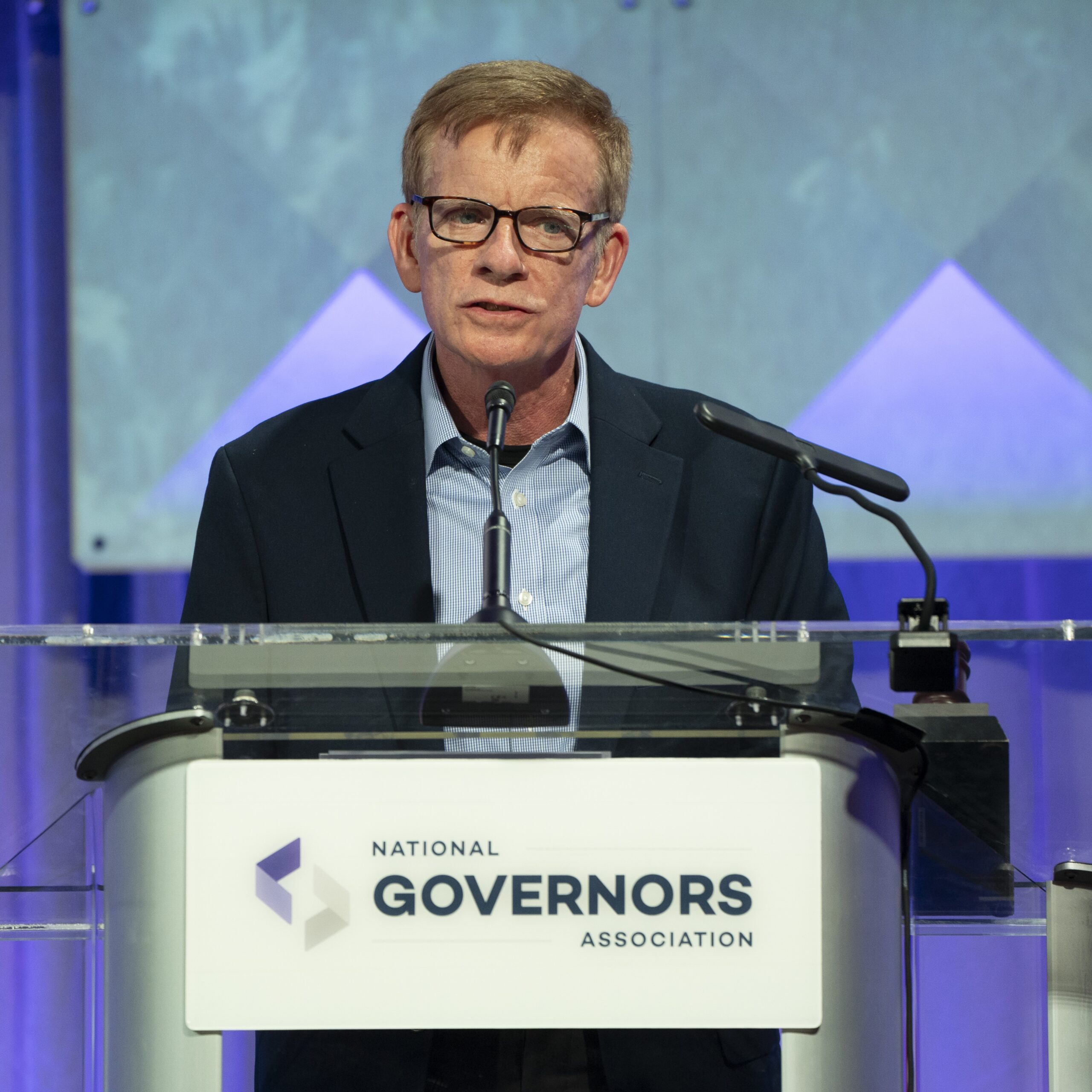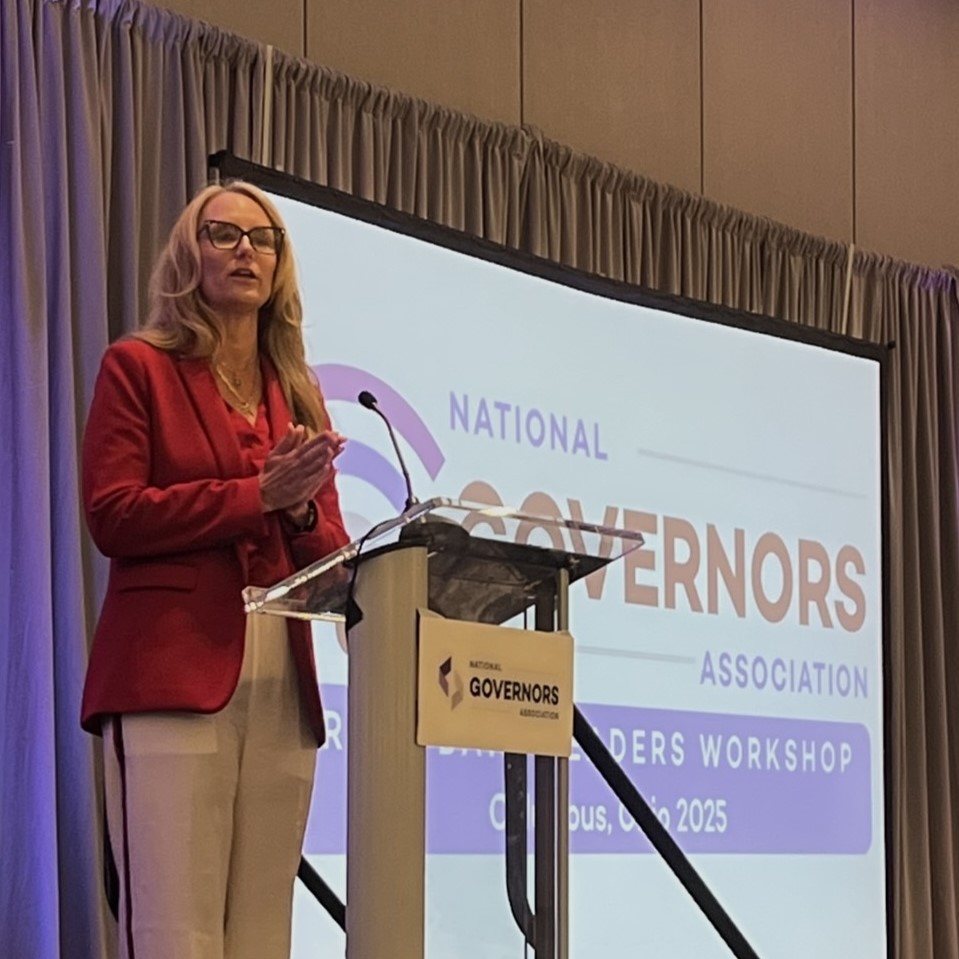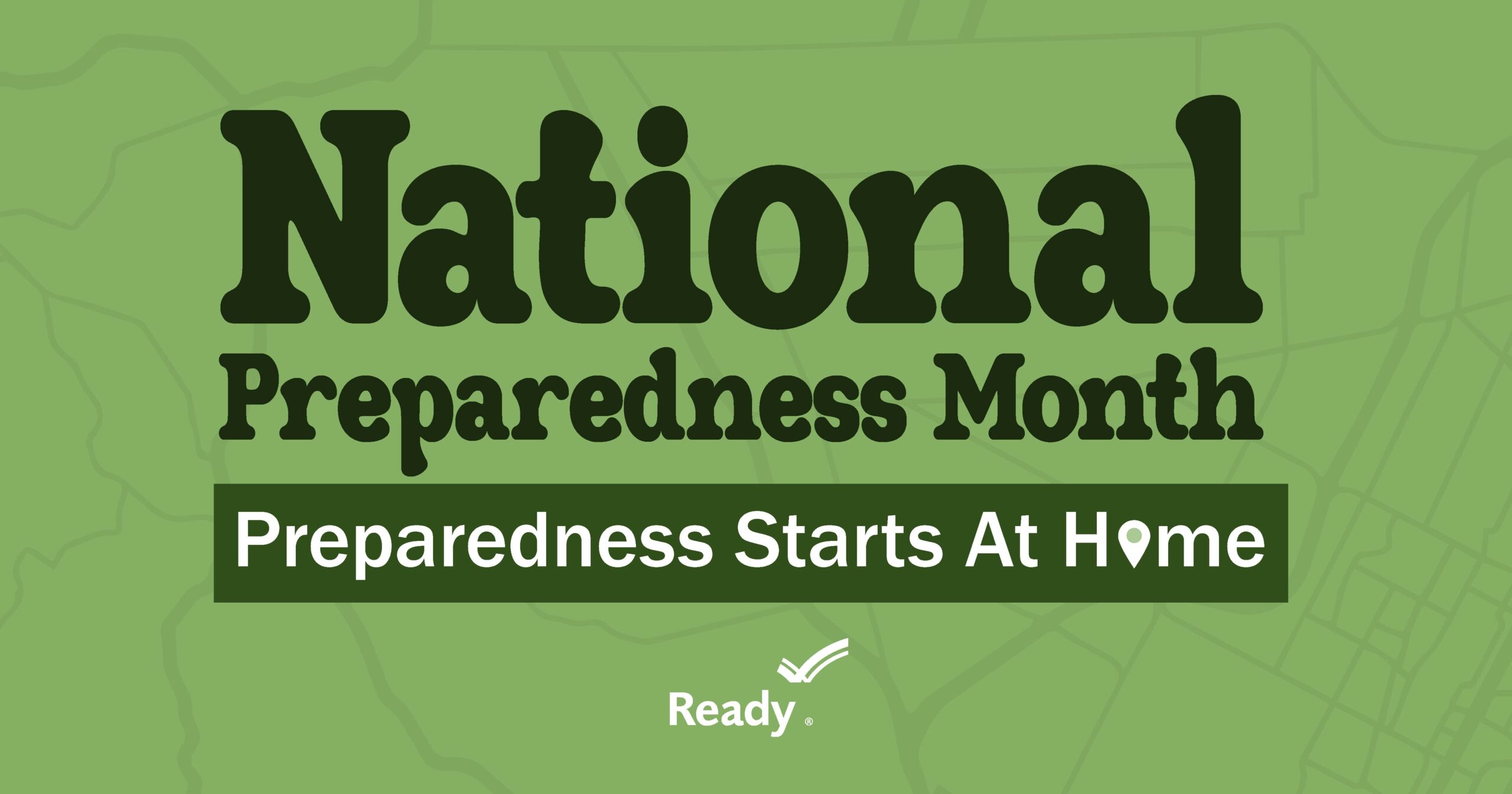
The importance of financial literacy is clear. It allows people to make informed decisions related to budgeting, saving, borrowing and investing, ensuring that individuals live within their means, while simultaneously generating wealth. Financial literacy is an essential life skill, yet only fifty-seven percent of Americans are considered financially literate according to a survey from credit rating agency Standard & Poor’s (S&P). In a 2023, Annuity.org and Bankrate report, more than one-third of American adults reported having more credit card debt than emergency savings, 68 percent did not believe that they could cover one month of living expenses if they lost their primary source of income, and 25 percent said they had no trusted source to obtain financial guidance.
States, territories, and their Governors recognize the value of financial literacy in their communities and in their education systems. After California instituted a financial literacy high school graduation requirement, Governor Gavin Newsom expressed that “saving for the future, making investments, and spending wisely are lifelong skills that young adults need to learn before they start their careers, not after.” Similarly, Governor Ron DeSantis stressed that “financial literacy is an important life skill” when signing a similar financial literacy bill, requiring Florida high school students to take a financial literacy course prior to graduating. Making financial resources readily accessible for children and adults will empower individuals, teaching them how to spend, save, borrow, and accumulate wealth, leading to economic security, a stronger, more educated workforce, and financially capable communities.
Governors Promoting Financial Stability
Governors have made several financial savings, investment opportunities, and resources available to their constituents. In Wisconsin, for example, Governor Tony Evers created the Governor’s Council on Financial Literacy and Capability, which helps Wisconsinites build financial capability and identify ways to improve the financial inclusion of all Wisconsin residents. Governor Evers reflected on the importance of this council stating, “by working together, we can help ensure every Wisconsinite has access to affordable and timely financial products and services to manage their daily lives and plan for everything from unexpected emergencies to long-term goals. The Council’s work will help provide individuals and businesses with the tools and resources they need to invest in education and housing, capitalize on business opportunities, save for retirement, and cope with various economic shocks.”
In March of 2024, Washington Governor Jay Inslee signed the Washington Saves bill which establishes an automatic Individual Retirement Account (IRA) system available for Washingtonians without access to employer-based retirement systems. This program will ensure long-term financial health for Washingtonians.
In 2021, Governor Kathy Hochul signed legislation providing retirement plan options for available private-sector employees. Private sector employers who do not provide their employees with a retirement plan automatically enroll their employees in New York State’s Secure Choice Savings Plan, which employees can opt out of at any time. Governor Hochul explained that “part of ensuring that New Yorkers are financially stable is guaranteeing they have a reliable retirement plan. This legislation allows all workers to have a sense of relief and security.”
Beyond saving for retirement, Governors are promoting financial literacy as a means to create financial stability by providing incentives for individuals to obtain the financial knowledge they need to succeed in the workforce and for retirement. In Arizona, for example, students who graduate from a district or charter school and have demonstrated a high level of proficiency in personal finance are eligible to have a State Seal of Personal Finance attached to their diploma.
To effectively teach financial literacy across the education continuum, educators must be equipped with the requisite knowledge. That is why Florida provides opportunities for teachers to learn about and prepare for finance courses, providing up to 2,000 teachers with access to 20 hours of professional learning and the ability to earn up to $500 through a grant administered by Next Gen Personal Finance and the Stiles-Nicholson Foundation.
State Agencies Leading on Financial Literacy
State agencies, along with our nation’s Governors, have taken a leading role in providing individuals with the resources that they need to obtain significant financial knowledge.
In North Dakota, Governor Doug Burgum worked with his 11 state agencies to kick off Financial Literacy Month in April. As part of this month, the state launched the “Smart with your Money” resource designed to help North Dakotans navigate their financial needs.
In Vermont, Governor Phil Scott and State Treasurer Mike Pieciak worked with the Vermont Network Against Domestic and Sexual Violence and the Vermont Regional President of M&T Bank to establish a partnership that helps survivors of domestic violence gain stronger financial literacy skills. This program was launched in March 2024.
The Nebraska State Treasurer’s Office houses a series of useful resources for its residents, including three webinars, geared toward grade school students, high school students, and families.
Not only do state agencies contain resources, but they also set standards that educators should follow.
In 2017, the Arkansas State Legislature passed Act 480, which states that the Department of Education, in consultation with the Department of Career Education, oversees the development of personal and family finance standards.
Arizona’s Department of Economic Security established that financial literacy programs can qualify as a work activity for the purposes of the Temporary Assistance for Needy Families (TANF) program supporting TANF’s mission of achieving self-sufficiency.
Financial Literacy Work in Postsecondary Education
Governors and state education institutions are doing a lot of work across the continuum. Specifically, states have been relying heavily on postsecondary institutions to provide students with the knowledge that they need to take advantage of the many financial opportunities and resources that their Governors and states have made available to them.
In October 2023, Georgia’s Secretary of State’s Security Division hosted a financial literacy program at the University of North Georgia, highlighting the importance of empowering, educating, and encouraging students in Georgia to be financially fit.
Additionally, Indiana University has established a variety of financial wellness services, including an Office of Financial Wellness and Education, addressing issues related to affordability and reducing student borrowing levels. Since 2011, the Office has contributed to a $126.4 million reduction in student borrowing and a 23% decrease in borrowing across all Indiana University campuses.
In April of 2024, Delaware State University opened its new Charles Schwab Financial Literacy Institute in its College of Business. This partnership seeks to increase financial literacy across the state with workshops designed to help students navigate the transition from college into the workforce.
North Carolina State University has a financial wellness page with numerous useful resources to help its students and the public get the information that they need.
Texas A&M offers on-campus engagement events related to financial literacy and individual assistance through the Financial Education Coordinator’s Office. Beyond that, Texas A&M has a Financial Literacy fellowship program, in which those interested in helping others learn about financial topics can apply and receive a $2,000 scholarship per semester, encouraging students to both obtain a high level of financial literacy and then educate others within the community on these topics.
Fairmont State University developed the “Get a Life” program for the West Virginia State Treasurer’s Office, which teaches students statewide about the importance of managing personal finances through an engaging budget simulation.
The University of Wisconsin-Madison Financial Education program helps families achieve financial well-being with a focus on the following topics:
- Building and Maintaining Credit
- Finding and Keeping Affordable Housing
- Saving for Post-Secondary Education
- Saving on Taxes
- Reentry Ready Resources
The University of Guam is offering its own Financial Literacy Certification program with a focus on teaching its students about income taxes and the importance of saving and investing early.
Additional Resources
The importance of financial literacy is becoming increasingly clear, and Governors are taking a leading role in making relevant information accessible. For more detailed information on the work that states are doing, please find the Postsecondary Education Financial Literacy resource page here. This page consolidates information on many of the resources that exist on financial literacy and highlights the work that states are doing in this area. Additionally, contact Abigail Rhim with NGA’s Postsecondary Education Team to learn more about upcoming financial literacy work within NGA.












